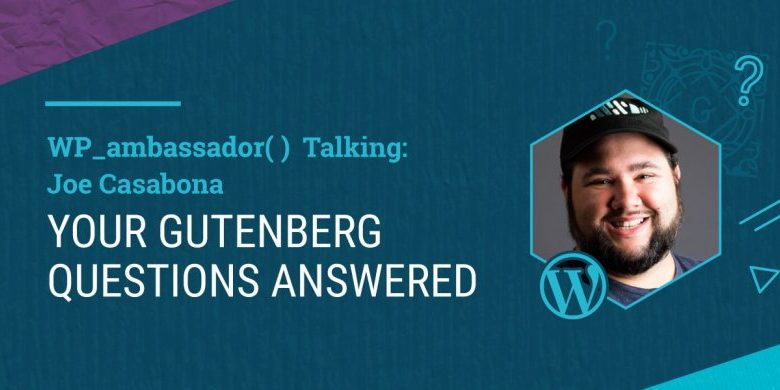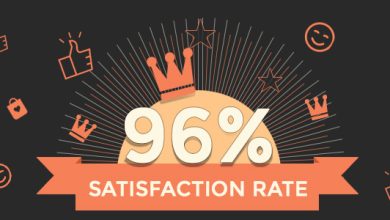Your Most Common Gutenberg Questions Answered

Your Most Common Gutenberg Questions Answered
Table of Contents
A few months ago we introduced our WordPress Community Ambassadors. We announced that we would support these very deserving individuals to travel and speak at WordCamps, so they can continue to share their expertise and lift up other WordPress users. Now, we want them to have their place on our blog with the same purpose in mind – educate and help our readers understand better the ins-and-outs of WordPress.
The first post that we will share with you is by Joe Casabona on Gutenberg – the hottest topic in the community for the past 10-12 months. Joe is a fantastic trainer, whose talent is to make complex things easy to understand for anyone. In the past year he has worked tirelessly to produce training material for Gutenberg, the new block editor included with WordPress 5.0. This is his first article for the SiteGround blog, enjoy!
WordPress 5.0 was recently released. The most notable new feature in 5.0 is the new editor, based on blocks and also known as Gutenberg. While it’s sure to really improve the content-creation experience, there are a lot of questions surrounding the update and what it means for current websites. Here are the answers to some of the most common inquiries both the SiteGround team and I have received from WordPress users so far.
What will happen to my old posts?
Your old posts will be perfectly fine! 2 things have to happen after upgrading for them to be affected at all:
- You need to open the post for editing in the wp-admin using the new block editor.
- You need to click a button that says, “Convert to Blocks”to have your content converted from a single block, into several separate blocks.
Unless you do both of those things, for every piece of content, your old posts are safe and sound. You can watch a video on how to upgrade your content here.
What will happen to posts with page builders?
Since page builders are 3rd-party plugins, it would be best to reach out to them directly and ask how their plugin will be affected, because your mileage may vary. If we look at a couple of examples, both Elementor (which SiteGround clients have an exclusive deal for) and Beaver Builder have added full Gutenberg compatibility, meaning if you use either of those, anything you’ve build with them will work the same.
The Elementor team has taken it one step further, adding their own Elementor Blocks to Gutenberg. This will allow you to embed Elementor templates inside the Gutenberg editor. Super cool!
What will happen to posts with custom fields?
Custom Fields will show up under the block editor in Gutenberg, where it’s always been. There are some plugins that are working to add better custom field support in blocks, like ACF, or change the interface a bit so they show up in the sidebar.
But if you’re using PHP-defined custom fields, they’ll work exactly like they do now, in the current editor.
Will the readers see any difference?
Nope! All of the changes are happening on the backend/WordPress Dashboard. The only thing your readers will see is more robust content!
Are there any Gutenberg compatible themes?
Yes! Lots of themes have recently announced Gutenberg compatibility. For your specific theme, you should reach out to the developer who created it to see if they have plans to support Gutenberg.
If you have a custom developed theme, you should inquire about the cost of updating it.
WordPress 5.0 also ships with its own Gutenberg-friendly theme, Twenty Nineteen.
How do I check if the plugins I use are Gutenberg compatible?
Much like page builders, you should check to see if the plugin developers have made a statement about Gutenberg support. If they haven’t, reach out to them!
There was also a research project done earlier this year to test Gutenberg compatibility in plugins, but that’s no longer being maintained. You can read the results of the project here.



